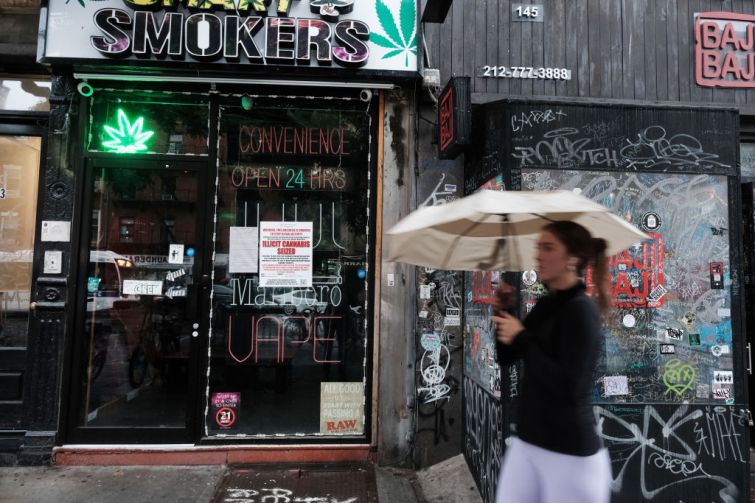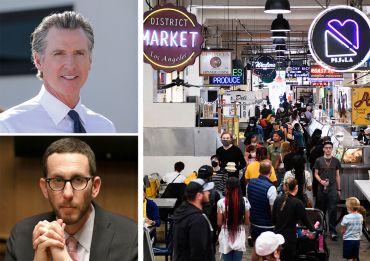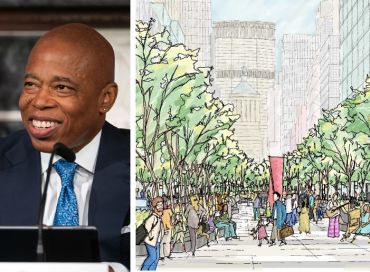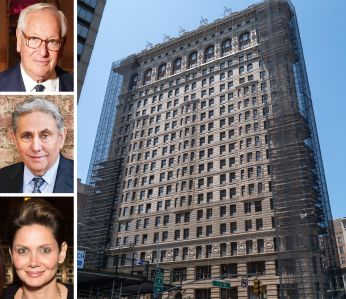NYC Takes Aim at Landlords for Renting to Illegal Smoke Shops
Sheriff puts owners of 50 buildings on alert about fines for leasing to illegal smoke shops
By Abigail Nehring November 27, 2023 7:27 pm
reprints
New York City landlords beware: If you lease to an illegal smoke shop, you could get mail from the sheriff’s office this week.
Mayor Eric Adams announced Monday that the owners of 50 buildings across the five boroughs will receive warning letters that they could be on the hook for fines for leasing retail space to illegal smoke shops. It’s the first step in a new legal front the city is pursuing against unlicensed cannabis shops: targeting their landlords.
Owners of buildings that lease space to unlicensed smoke shops could face an “injunction and penalties of up to $1,000 per day” and the city may request they “initiate an action to remove the tenants from the property,” according to a sample letter published online.
If the landlords don’t take action, they could be hit with fines of up to $5,000 a day — along with footing the bill for the city’s costs and lawyer fees — under a recently passed law targeting property owners who knowingly lease to illegal smoke shops.
The launch of the legal cannabis marketplace in New York has not gone as planned. Tax revenue from the first cannabis dispensaries averaged a meager $3.3 million per month in the first five months of the year, according to a report by the Coalition for Access to Regulated & Safe Cannabis.
The state is far behind the $56 million in tax revenue it hoped to raise in the first year of the recreational cannabis rollout, which has been stymied by lawsuits and a lackluster response from investors to the state’s first-of-its-kind Cannabis Social Equity Investment Fund. The fund only received its first allocation this July with a pledge of up to $150 million for “turnkey” retail shops, the Times Union reported.
In the meantime, the streets of New York City are aglow with neon green signs advertising cannabis products from unlicensed shops on seemingly every corner.
Adams began to crack down on the problem with the announcement of a new sheriff’s task force last year that has been conducting raids on illegal smoke shops and confiscating illegal cannabis products. The task force estimated at least 1,400 illegal smoke shops were operating in the city last year, and research firm New Frontier Data approximated that 8,000 were open as of August, Crain’s New York Business reported.
The illegal cannabis market is predicted to pull in $5.4 billion in sales statewide this year, far outpacing the estimated $2 billion in legal sales for the year, Crain’s reported.
The idea to take aim at landlords has been percolating for some time. Manhattan District Attorney Alvin Bragg first homed in on the strategy earlier this year with 400 letters to smoke shops in Manhattan. The DA sent follow-up letters to some of the landlords warning about penalties under the city’s nuisance abatement law, but the action had little immediate effect.
Meanwhile, members of the New York City Council began sharpening their pencils, and the council passed a bill to target landlords in August.
The mayor said in a statement he’s “using every tool available” to combat illegal smoke shops. That includes “sending a clear message that anyone helping these illegal, unlicensed shops spread throughout our communities will be held accountable,” he added.
A spokesperson for the New York City Sheriff’s Office, which penned the letters, declined to share the names of any of the landlords who will receive them, but the 50 locations on the list have been under the eye of the city’s interagency smoke shop task force for some time, according to the mayor.
The city has imposed a total of $3.2 million in civil penalties and has seized an estimated $3.9 million in illegal products from the locations.
A person familiar with New York’s cannabis industry, who spoke on condition of anonymity, said landlords should take the letters seriously since they represent “a first step before other actions are taken.”
The letters may come as an unpleasant surprise for some, the person added, since landlords might not be aware they are renting to an illegal dispensary.
“It might be news to some of them,” the source said. “You might not know who’s planning to open a smoke shop in your building.”
Abigail Nehring can be reached at anehring@commercialobserver.com.


